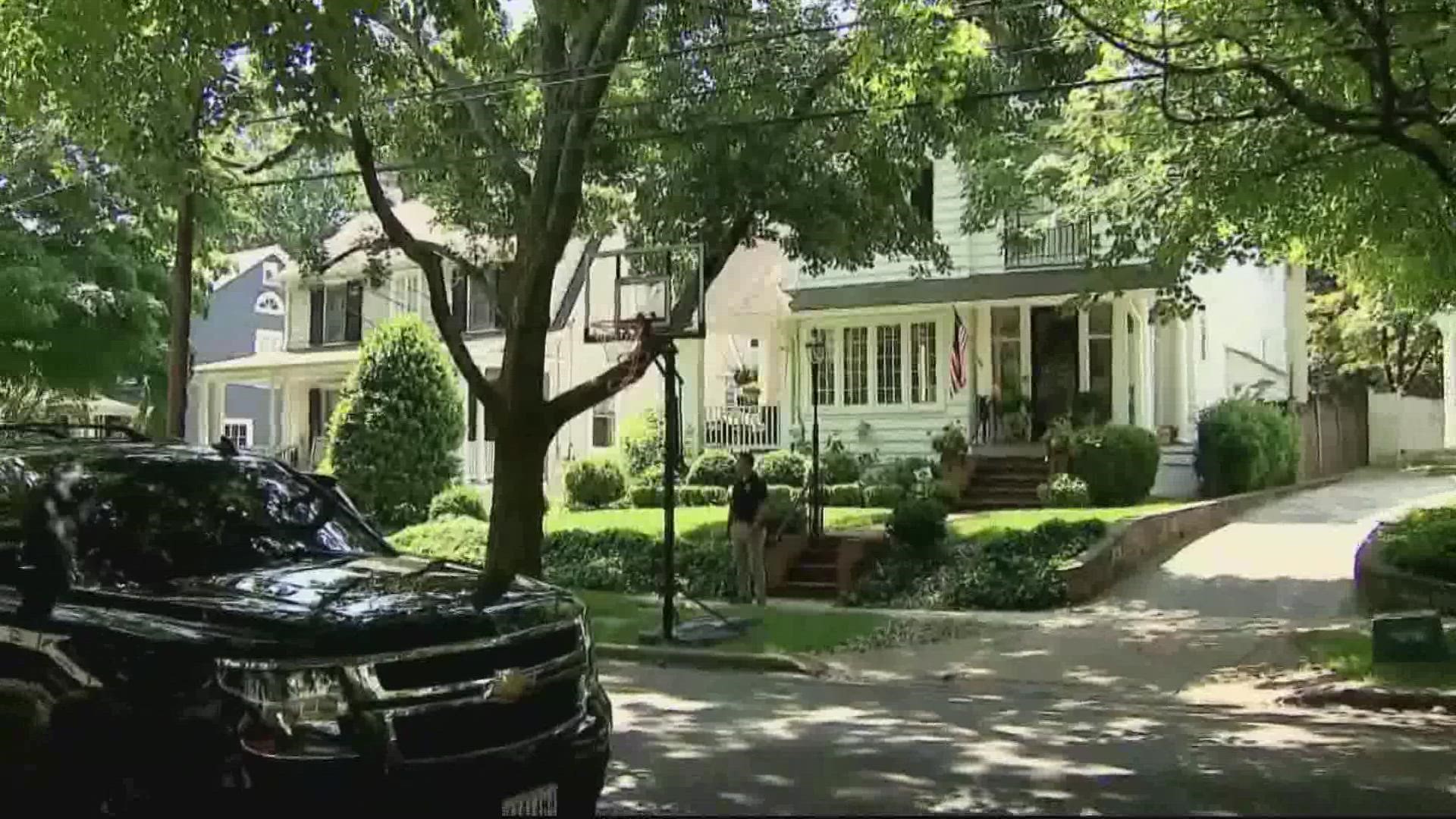WASHINGTON — Editor's Note: The video above was published on June 9.
A federal grand jury officially indicted a 26-year-old California man Wednesday on federal charges of attempting to murder a justice of the United States, specifically, an associate justice of the Supreme Court.
Nicholas John Roske is accused of traveling from California to Maryland to try to kill Supreme Court Justice Brett Kavanaugh.
The Associated Press reports Roske told police he was upset by a leaked draft opinion suggesting the Supreme Court is about to overrule Roe v. Wade, the landmark abortion case. He also said he was upset over the school massacre in Uvalde, Texas, and believed Kavanaugh would vote to loosen gun control laws, according to prosecutors.
According to court documents, U.S. Marshals stationed outside Kavanaugh’s home saw an individual later identified as Roske exit a taxi that had stopped in front of the residence just after 1 a.m. Roske was reportedly wearing black clothing and carrying a backpack and suitcase. When Roske saw the marshals, they said, he turned and walked down the street.
A short time later, the Montgomery County Emergency Communications Center received a call from someone identifying himself as Roske and saying “he was having suicidal thoughts and had a firearm in his suitcase.” The caller admitted he had come from California to kill a specific U.S. Supreme Court justice.
In a recording of the 9-1-1 call, Roske told the dispatcher he had a firearm with him, but that it was unloaded and in a locked case.
“It’s in a suitcase. It’s in a black suitcase,” Roske said. “I’m standing near it but it’s zip-tied shut, from, I just came from the airport.”
Roske said he also had pepper spray, a knife and “various tools” in the suitcase. In court documents, prosecutors said those tools included a crowbar, nail punch, hammer and duct tape.
The indictment seeks the forfeiture of a firearm, two magazines loaded with 10 rounds each of 9mm ammunition; 17 rounds of ammunition contained in a plastic bag, a black speed loader, and additional items allegedly intended to be used in the commission of the crime.
If convicted, Roske faces a maximum sentence of life in federal prison, however, actual sentences for federal crimes are typically less than the maximum penalties, according to a release from the Department of Justice.

